Program details
-
RS1 Research group on development of new drug and technology on metabolic disease
The recent paradigm for research and development of new medicine and technology in metabolic disorder
Chair(s): Choon Hee Chung, Gwanpyo Koh
Thursday 19 October, 15:30~16:50
Room 1 (3F)
-
This session entitled with 'The recent paradigm for research and development of new medicine and technology in metabolic disorder' is translational session and designed to provide a place for clinicians and basic researchers on development of new drug and technology on metabolic disease to understand the novel pathogenesis and potential therapeutic targets for metabolic diseases. In this session, discovery of a peripheral 5HT2A antagonist as a clinical candidate for nonalcoholic steatohepatitis (NASH), Rho-kinase is a molecular target for fatty liver diseases, ILDONG's new drug development program for the metabolic diseases and the searching process for biomarkers predicting diabetes and complications will be comprehensively discussed. This session will enhance the understanding for the recent advancement for novel drugs and technology of metabolic diseases.
-
-
 RS1-1
RS1-1
Jin Hee Ahn
GIST, Korea
-
Discovery of a new NASH clinical candidate
-
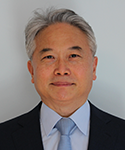 RS1-2
RS1-2
Young-Bum Kim
Harvard University, USA
-
Rho-kinase is a molecular target for fatty liver diseases
-
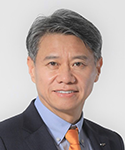 RS1-3
RS1-3
Sung Goo Choi
Ildong Pharmaceutical, Korea
-
ILDONG's new drug development program for metabolic diseases
-
 RS1-4
RS1-4
Ho Chan Cho
Keimyung University, Korea
-
The searching process for biomarkers predicting diabetes and complications
- Panel discussion
-
-
 RS1-Panel 1
RS1-Panel 1
Seung-Soon Im
Keimyung University, Korea
-
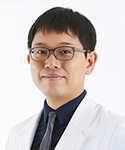 RS1-Panel 2
RS1-Panel 2
Dughyun Choi
Soonchunhyang University, Korea
-
 RS1-Panel 3
RS1-Panel 3
Sunghwan Suh
Sungkyunkwan University, Korea
-
RS2 Research group on beta cell biology and islet transplantation & AIBIS joint session
Journey to overcome diabetes: insights through islet biology and xenotransplantation
Chair(s): Ki-Ho Song, Jeong Hyun Park
Thursday 19 October, 15:30~16:50
Room 3 (3F)
-
The advancement of diverse scientific and technological fields has yielded a plethora of tools for delving deeper into the understanding of beta cells. Biogenetic engineering, in particular, has played a significant role, spanning from stem cell research to xenotransplantation. This session aims to present recent studies focusing on the characterization, differentiation, and dysfunction of beta cells, as well as the broader landscape of islet biology. Furthermore, we will explore groundbreaking discoveries in the field of xenotransplantation and delve into strategies for surmounting the limitations in clinical applications. Throughout this session, a comprehensive viewpoint will be offered, encompassing cutting-edge research spanning from the pathophysiology of diabetes involving in islet biology to the realm of islet transplantation.
-
-
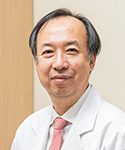 RS2-1
RS2-1
Byung Joon Kim
Gachon University, Korea
-
Islet xenotransplantation: unlocking the new possibility in diabetes care
-
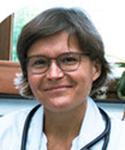 RS2-2
RS2-2
Miriam Cnop
Universite Libre de Bruxelles, Belgium
-
Endoplasmic reticulum stress causes beta cell failure in monogenic and polygenic diabetes
-
 RS2-3
RS2-3
Takeshi Miyatsuka
Kitasato University, Japan
-
Heterogeneity of islet cells during embryogenesis and differentiation
-
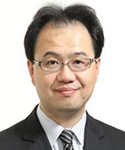 RS2-4
RS2-4
Shun-ichiro Asahara
Kobe University, Japan
-
Role of mTORC1 in the regulation of pancreatic beta cell mass
-
RS3 Research group on energy metabolism
Intertwined pathophyisology of diabetes and NAFLD
Chair(s): Dae Ho Lee, Kae Won Cho
Thursday 19 October, 15:30~16:50
Room 4 (2F)
-
In recent years, emerging evidence has highlighted various intertwining mechanisms that link diabetes and NAFLD. This session aims to delve into cutting-edge research focusing on four key topics that explore the intricate inter-organ connections. The session will provide attendees with a comprehensive overview of pathophysiology of diabetes and NAFLD, showcasing cutting-edge research and novel insights into the molecular mechanisms that connect these two metabolic conditions. By understanding the molecular mechanism and interconnections among islet cells, intestine, adipose tissue, and the liver, researchers and clinicians can work collaboratively to develop targeted and effective treatments for individuals suffering from the concomitant burden of diabetes and NAFLD.
-
-
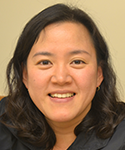 RS3-1
RS3-1
Dayoung Oh
UT Southwestern Medical Center, USA
-
Regulation of GPR92-mediated intercellular communication in islets
-
 RS3-2
RS3-2
Won-Il Jeong
KAIST, Korea
-
Hepatic glutamate-mediated steatosis and inflammation
-
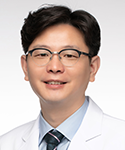 RS3-3
RS3-3
Sungsoon Fang
Yonsei University, Korea
-
Intestinal FXR agonism modulates inter-organ crosstalk between intestine and adipose tissue to maintain glucose homeostasis
-
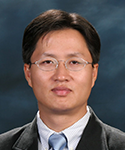 RS3-4
RS3-4
Hail Kim
KAIST, Korea
-
Selective hepatic insulin resistance is not selective; serotonergic regulation of hepatic insulin signaling
-
RS4 Research group on diabetic vascular biology
Integration of biology and epidemiology in diabetic vascular diseases
Chair(s): Soon Hee Lee, Hyuk-Sang Kwon
Thursday 19 October, 15:30~16:50
Room 5 (2F)
-
Vascular diseases associated with diabetes are the leading cause of multi-organ damage, including renal failure, blindness, and atherosclerosis, and account for disabilities and high mortality rates in patients with diabetes. This session will introduce the first report on the Korean epidemiological fact sheets on diabetic vasculopathy and provide novel pathogenic mechanisms for vascular diseases demonstrated by several advanced technologies.
-
-
 RS4-1
RS4-1
Jin Hwa Kim
Chosun University, Korea
-
Diabetic vascular complications factsheet in Korea
-
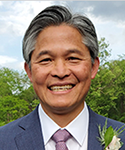 RS4-2
RS4-2
Hanjoong Jo
Emory University, USA
-
Blood Flow-Induced Reprograming of Endothelial cells (FIRE) in atherosclerosis
-
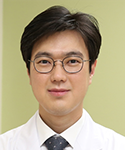 RS4-3
RS4-3
Junyeop Lee
University of Ulsan, Korea
-
Novel concepts in the pathogenesis of diabetic vasculopathy
- Panel discussion
-
-
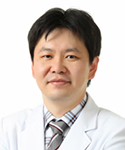 RS4-Panel 1
RS4-Panel 1
Sang Soo Kim
Pusan National University, Korea
-
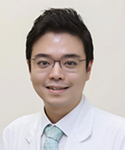 RS4-Panel 2
RS4-Panel 2
Chang Hee Jung
University of Ulsan, Korea
-
RS5 Research group on fatty liver disease
The NAFLD era: where we are
Chair(s): Cheol-Young Park, Mi-Kyung Kim
Thursday 19 October, 16:50~18:10
Room 3 (3F)
-
This session will cover diabetes and NAFLD from basic to clinical. Earlier in the session, speakers will talk about the first Korean fatty liver & diabetes statistics and assessment and management of diabetes & NAFLD. Later in the session, speakers will talk about drug screening strategies and developmental pathways of NAFLD using animal models.
-
-
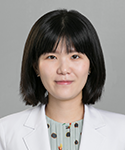 RS5-1
RS5-1
Eugene Han
Keimyung University, Korea
-
Fatty liver & diabetes statics in Korea 2009-2017
-
 RS5-2
RS5-2
Terry Cheuk-Fung Yip
The Chinese University of Hong Kong, China
-
Building a clinical care pathway for diabetes and NAFLD
-
 RS5-3
RS5-3
Ji Hee Yu
Korea University, Korea
-
Drug screening strategies using the zebrafish model for NAFLD
-
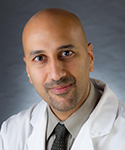 RS5-4
RS5-4
Utpal Pajvani
Columbia University, USA
-
Maladaptive regeneration - the reawakening of developmental pathways in the obese liver
-
RS6 Research group on genetics
Polygenic risk scores - is it ready to be used in the clinic?
Chair(s): Sung-Hoon Kim, Jae Hyuk Lee
Thursday 19 October, 16:50~18:10
Room 4 (2F)
-
The session for the research group on genetics will focus on the readiness of Polygenic Risk Scores (PRS) for clinical use. We will begin by exploring the methods employed in constructing PRS and their application in predicting diabetes and related complications. Our discussion will then shift to the commercial development of PRS, including the associated regulatory challenges. Lastly, we will address the complexities of identifying monogenic diabetes, a distinct and often misdiagnosed form of the disease. We eagerly anticipate a vibrant and insightful dialogue during the session.
-
-
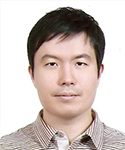 RS6-1
RS6-1
Wonil Chung
Soongsil University, Korea
-
Methods for constructing polygenic risk scores
-
 RS6-2
RS6-2
Jae-Seung Yun
The Catholic University of Korea, Korea
-
Polygenic risk scores for diabetes and related complications
-
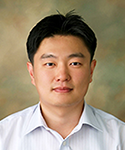 RS6-3
RS6-3
Sungho Won
Seoul National University, Korea
-
Risk prediction with polygenic risk score and updates from commercial genome-wide scans
-
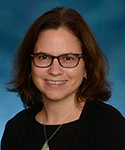 RS6-4
RS6-4
Toni I. Pollin
University of Maryland, USA
-
Issues in identifying monogenic diabetes
-
RS7 Research group on CGM and AID
CGM for everyone: now with RCT evidence in Koreans
Chair(s): Min Kyong Moon, Jae Hyeon Kim
Thursday 19 October, 16:50~18:10
Room 5 (2F)
-
This is a session on the latest RCT evidence on CGM in Koreans covering individualized nutrition,
type 2 diabetes with and without intensive insulin therapy, and automated insulin delivery (AID) in type 1 diabetes. As the first dedicated session organized by the Research Group on CGM and AID of Korean Diabetes Association, this session will help to understand the current evidence supporting the expanding role of CGM.
-
-
 RS7-1
RS7-1
Hun Jee Choe
Hallym University, Korea
-
Empowering diabetes management: leveraging patient-driven lifestyle modification with isCGM and the SEOUL Algorithm
-
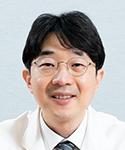 RS7-2
RS7-2
Sang-Man Jin
Sungkyunkwan University, Korea
-
T2DM with MDI and premixed insulin: results from the FreEdoM-2 trial
-
 RS7-3
RS7-3
Jun Sung Moon
Yeungnam University, Korea
-
Automated Insulin Delivery (AID): the first RCT evidence in Koreans
-
 RS7-4
RS7-4
Sun Joon Moon
Sungkyunkwan University, Korea
-
Individualized nutrition using CGM and Artificial Intelligence
 RS1-1
RS1-1 RS1-2
RS1-2 RS1-3
RS1-3 RS1-4
RS1-4 RS1-Panel 1
RS1-Panel 1 RS1-Panel 2
RS1-Panel 2 RS1-Panel 3
RS1-Panel 3 RS2-1
RS2-1 RS2-2
RS2-2 RS2-3
RS2-3 RS2-4
RS2-4 RS3-1
RS3-1 RS3-2
RS3-2 RS3-3
RS3-3 RS3-4
RS3-4 RS4-1
RS4-1 RS4-2
RS4-2 RS4-3
RS4-3 RS4-Panel 1
RS4-Panel 1
 RS4-Panel 2
RS4-Panel 2 RS5-1
RS5-1 RS5-2
RS5-2 RS5-3
RS5-3 RS5-4
RS5-4 RS6-1
RS6-1 RS6-2
RS6-2 RS6-3
RS6-3 RS6-4
RS6-4 RS7-1
RS7-1 RS7-2
RS7-2 RS7-3
RS7-3 RS7-4
RS7-4


